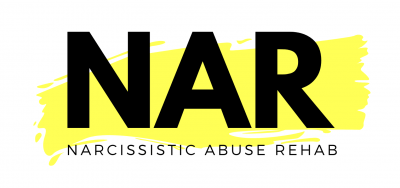Narcissistic hoovering is manipulation tactic that keeps the cycle of narcissistic abuse spinning. Just when the victim-survivor has passed through the psychological distress of the discard phase and is on the road to recovery, the narcissistic person reaches out to begin the process of re-engagement. It always comes as surprise because the manipulator has usually obliterated all hope of reconciliation with victim-survivor. Most people would not have the audacity to attempt to make up after such a brutal reject and the varying degrees of degradation, humiliation and betrayal that characterize narcissistic abuse. However, people of a narcissistic persuasion aren’t short on nerve and they have enormous confidence in their powers of persuasion.
There will be gaslighting, pity plays, and micro-doses of perilously addictive love-bombing laden with the promise of returning to the idealization phase of the relationship once again. Narcissistic hoovering is the pull that comes after the push, the hot after the cold, the re-emergence of Dr. Jekyll after an encounter with Mr. Hyde.
In this article, we’ll explore what the narcissistic hovering tactic is, how it works, and most importantly, how you can stop it in its tracks. Whether you’re currently in a relationship with a narcissist or are still recovering from the aftermath, this guide will provide you with the knowledge and strategies you need to move forward with confidence and strength.
What you will learn in this article:
- Overview
- Signs
- Emotional Impact
- How to Respond
- Dealing with Narcissistic Rage
- Coping Strategies
- Support
Understanding the Narcissistic Hoovering Tactic
Narcissistic hoovering is used by manipulators to maintain control over their partners, family members, and others who they more through a cycle of idealization, devaluation, and discarding. Hoovering activates traumatic bonds and arouse emotional dependency, anxiety, and toxic hope in the victim-survivor.
During the idealization phase, the narcissist will shower you with love, affection, and attention. They’ll make you feel like you’re the most important person in the world, and they’ll go above and beyond to make you happy. This is known as love bombing, and it’s a tactic that many narcissistic people use to gain your trust and admiration.
However, as the relationship progresses, the narcissist will begin to devalue you. They’ll start to criticize, belittle, and undermine you, often in subtle ways. They may make you feel like you’re not good enough, that you’re too needy, or that you’re the cause of all their problems. This is known as gaslighting, and it’s a form of emotional abuse that can leave you questioning your own sanity. When devaluation peaks it is followed by the discard phase when the narcissistic person rejects and often replaces the victim-survivor with a new love object.
Finally, when the narcissist feels like they’ve lost control over you, they’ll hoover you back in. They’ll reach out to you with promises of change, apologies, and declarations of love. They’ll make you feel like you’re the only one who can make them happy, and they’ll do whatever it takes to win you back.
Signs of Narcissistic Hoovering
It’s important to recognize the signs of narcissistic hoovering so that you can take steps to protect yourself. Some common signs include:
- The narcissist reaches out to you after a period of silence, often with promises of change or declarations of love.
- They use guilt, pity, or sympathy to manipulate you into coming back to them.
- They try to make you jealous by flaunting their new relationship, job, or success.
- They try to make you feel like you’re the only one who can help them, that they’re lost without you, or that they’ll never find anyone else like you.
- They use the same tactics they used during the idealization phase to win you back, such as love bombing or extravagant gestures of affection.
If you notice any of these signs, it’s important to take a step back and evaluate the situation. Remember that the narcissistic hovering cycle is a pattern of behavior, and it’s unlikely that the narcissist has truly changed.
The Emotional Impact of Narcissistic Hoovering
The emotional impact of narcissistic hoovering can be devastating. It can leave you feeling confused, anxious, and emotionally drained. You may feel like you’re on a constant emotional rollercoaster, never knowing what to expect from the narcissist.
The love bombing phase can be especially damaging because it creates a false sense of security and attachment. You may feel like you’ve finally found someone who truly understands and cares for you, only to have that illusion shattered during the devaluation phase. This can lead to feelings of betrayal, anger, and hurt.
Gaslighting, which is often a part of the devaluation phase, can be particularly damaging. It can leave you questioning your own sanity, wondering if you’re the one who’s at fault, and feeling like you’re walking on eggshells around the narcissist. This can lead to feelings of anxiety, depression, and low self-esteem.
Finally, the hoovering tactic can be especially painful because it gives you hope that the narcissist has changed. You may feel like you’re finally getting the love and attention you deserve, only to have the narcissist revert back to their old ways once they feel like they’ve regained control. This can lead to feelings of disappointment, anger, and frustration.
How To Respond
Rising above the narcissistic hoovering tactic requires setting boundaries with yourself and sticking to them. This can be difficult, especially if you’re still emotionally attached to the narcissist. However, it’s important to remember that setting boundaries is essential for your own emotional well-being.
Start by identifying what behaviors are acceptable and what behaviors are not. For example, you may choose to remain no contact with the narcissist and ignore their efforts to hoover you. One you have set this boundary with yourself, follow it up with affirmations. Once you’ve identified your boundaries, stick to them.
It’s important to remember that the narcissist may try to push your boundaries or ignore them altogether. Stay firm and be prepared to walk away if necessary. Remember that you deserve to be treated with respect and dignity, and you have the power to walk away from any situation that doesn’t meet those standards.
Dealing with Narcissistic Rage
One of the biggest challenges of breaking the narcissistic hoovering cycle is dealing with the narcissist’s rage. When the narcissist feels like they’re losing control, they may become angry, violent, or emotionally abusive. It’s important to take steps to protect yourself in these situations.
If you’re in immediate danger, call your local emergency services. If you’re not in immediate danger but still feel unsafe, consider reaching out to a domestic violence shelter or hotline for support.
It’s also important to document any incidents of abuse or violence. Keep a record of any threats, injuries, or damages, and consider seeking a restraining order if necessary.
Coping Strategies
Surviving narcissistic abuse can be a long and difficult journey. It’s important to take care of yourself and seek support from others who understand what you’re going through. Some coping strategies to consider include:
- Talking to a therapist and/or narcissistic abuse recovery coaching
- Join a support group for survivors of narcissistic abuse
- Practice self-care activities such as exercise, meditation, or creative expression
- Reconnect with friends and family who support you
- Set aside time for activities that give you peace of mind and contentment
- Remember that healing is a process, and it’s important to treat yourself with patience and kindness
Therapy and recovery coaching can be an important part of the healing process for survivors of narcissistic abuse. A therapist or coach who specializes in narcissistic abuse recovery can provide you with the tools and support you need to heal from the emotional wounds of narcissistic hoovering.
During therapy, you’ll have the opportunity to explore your feelings, develop coping strategies, and learn how to set healthy boundaries. A therapist or specialized coach may also use techniques such as cognitive-behavioral therapy (CBT), dialectical behavior therapy (DBT), or eye movement desensitization and reprocessing (EMDR) to help you process and heal from the trauma of narcissistic abuse.
Practice Self-Compassion
Remember that healing is not linear and no two journeys are the same. There will be ups and downs along the way, so it’s important to practice self-compassion.
As you move forward, focus on setting and maintaining healthy boundaries, practicing self-care, and seeking support from others who understand what you’re going through. Remember that you deserve to be treated with respect and dignity, and you have the power to create a life that is free from narcissistic abuse.
Conclusion
The narcissistic hoovering can leave you feeling confused, anxious, and emotionally drained. But with the right tools and support, you rise up the manipulation and stay focused on your recovery. Remember to set healthy boundaries, seek support from others, and focus on your own emotional well-being. Healing from narcissistic abuse is a process, but with patience and perseverance, you can move forward in your purpose.






